
Is it still objective when securities companies "hold" thousands of billions in self-trading assets? - Photo: AI
Securities companies trade and then give impartial recommendations?
Saigon - Hanoi Securities (SHS) is known as one of the enterprises with strengths in self-trading with a portfolio of more than VND 9,000 billion by the end of the second quarter of 2025.
Investors often pay close attention to this company's portfolio, but sometimes with skepticism.
An example is the updated report onFPT recently published by SHS on July 24. In the report, SHS gave its opinion and recommendation to hold FPT shares but did not mention that the company is holding millions of FPT shares as an investment in its proprietary trading portfolio.
By the end of the second quarter of 2025, FPT had been invested by SHS Securities with a capital cost of nearly VND 250 billion.
VIX Securities also holds a proprietary trading portfolio of nearly VND 13,000 billion with many stocks on the stock exchange such as EIB (VND 1,935.6 billion), VSC (VND 1,093.4 billion), HAH (VND 617.6 billion), GEX (VND 444.3 billion), BSR (VND 875.2 billion)...
Meanwhile, HSC Securities has increased the value of its proprietary trading portfolio to over VND 3,500 billion by the end of the second quarter of 2025 with large investments in TCB (VND 1,211 billion), FPT (VND 873 billion), MWG (VND 381 billion), STB (VND 375 billion)...
Many investors ask the question: are the recommendations of the company and brokers completely objective, or are they influenced by the interests of the self-trading portfolio?
Speaking to Tuoi Tre , the director of a securities company with a positive mindset said that this is a traditional form of conflict. The market context is now more developed and in fact, a part of investors are no longer too "strict" on this issue.
Instead, many investors want smarter and more transparent mechanisms to be able to refer to the most accurate proprietary portfolio possible.
At the 2024 annual general meeting of shareholders of a securities company with a "huge" portfolio, some shareholders expressed their wish to be updated with information and portfolio more regularly.
Being a publisher, a market maker and a self-employed trader
Mr. Nguyen The Minh, a securities expert, pointed out that the difference between domestic and foreign securities companies is the level of participation in self-trading.
In developed markets, securities companies often do not or very limitedly trade on their own, due to strict regulations to avoid conflicts of interest with customers. They focus on the role of intermediaries, providing brokerage, consulting, and asset management services.
Meanwhile, in Vietnam, the business model is different. With the pressure of "zero fee" competition and the trend of lowering margin interest rates, domestic companies are forced to find additional sources of profit from self-trading to maintain ROE (return on equity) efficiency. "Conflicts of interest, although not obvious, are unavoidable," Mr. Minh commented.
If stock trading is considered a "traditional conflict", covered warrants (CW) add a new layer of complexity. CWs are products issued by the securities company itself, meaning they are both the issuer, the market maker, and the trader.
The spreads, expiration dates and the way brokers operate the warrant market create a “gray area” of potential conflicts of interest. However, the key point is that the warrant product is still in its infancy and illiquid.
In developed markets like Taiwan, CWs are more active and investors can actually still make a profit if the underlying stock moves as expected.
Learn from crypto - but be careful
To address the traditional conflicts of self-trading, the crypto industry has "kindled" vault or copytrade products, allowing investors to directly participate or copy the portfolio and transactions of a fund or trader.
This, in theory, helps to create transparency and reduce conflicts, as investors are allowed to "go along" with large cash flows.
However, according to Mr. Minh, even copy trade has not been completely resolved. In particular, in Vietnam, if there is any copy trade data, it is only provided one-way, not real-time, and is controlled by the securities company itself. In addition, the risk from copy trade can also create a "herd" effect that disrupts the market.
In the crypto world, transaction data can be stored immutably on the blockchain, allowing for public and immediate monitoring. Meanwhile, the traditional stock market in Vietnam does not have such infrastructure.
"To implement real-time trading and provide real-time data requires strategy and large investment in the system, from machinery, network to synchronous monitoring mechanism. Not only securities companies, but also management agencies must participate," Mr. Minh emphasized.
Experts believe that applying blockchain to transparent self-trading or copy-trading portfolios according to "real-time" standards is a problem that needs to be solved soon. But in the immediate future, the most important thing is to strengthen regulations on information disclosure.
Analytical reports need to be more transparent about the relationship between the securities company and the analyzed enterprise, the floating data of CW products...
The copy trade and vault trends need to be "encouraged" following world trends, but there also need to be regulations and independent reporting, monitoring and auditing mechanisms to avoid moral hazard.
Conflicts of interest in proprietary trading are a reality that is difficult to completely eliminate. But instead of hiding them, the market needs to move towards transparency, so that investors have full information before making decisions.
Source: https://tuoitre.vn/tu-doanh-chung-khoan-khi-nha-dau-tu-va-cong-ty-vua-la-doi-tac-vua-la-doi-thu-20250907091253643.htm







![[Photo] Deep sea sand deposits, ancient wooden ship An Bang faces the risk of being buried again](https://vphoto.vietnam.vn/thumb/1200x675/vietnam/resource/IMAGE/2025/11/13/1763033175715_ndo_br_thuyen-1-jpg.webp)



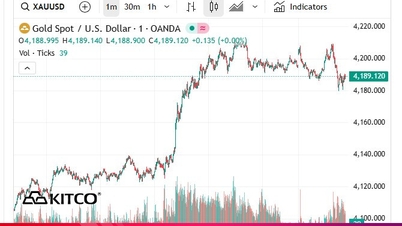

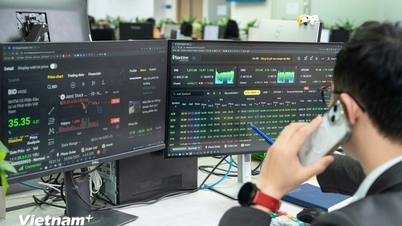















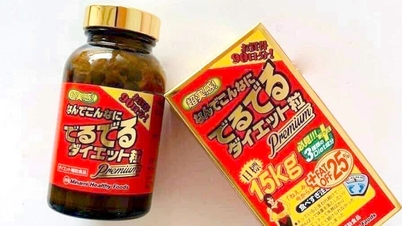











































![[Photo] Panorama of the 2nd Vietnam-Cambodia Border Defense Friendship Exchange](https://vphoto.vietnam.vn/thumb/402x226/vietnam/resource/IMAGE/2025/11/13/1763033233033_image.jpeg)
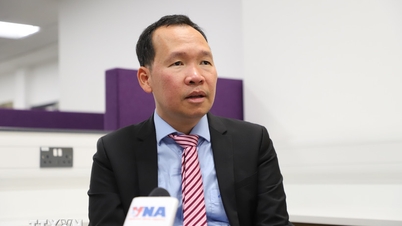













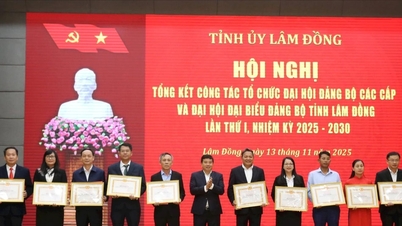


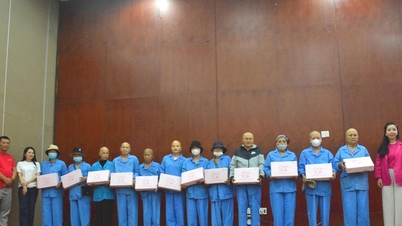





![Dong Nai OCOP transition: [Article 3] Linking tourism with OCOP product consumption](https://vphoto.vietnam.vn/thumb/402x226/vietnam/resource/IMAGE/2025/11/10/1762739199309_1324-2740-7_n-162543_981.jpeg)







Comment (0)